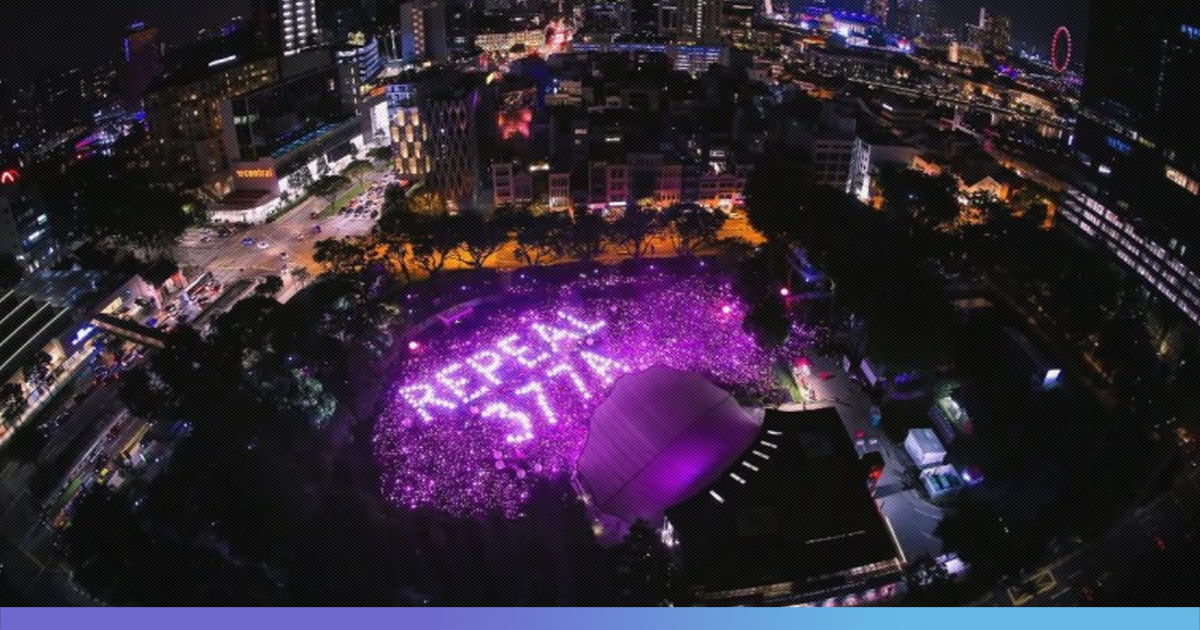Singapore’s top court on Wednesday heard the first legal challenge to its gay sex law since citing the Indian Supreme Court scrapping of Article 377 last year.
The three activists argued that the Section 377A, of the Singapore Law which criminalises consensual sex between two adult men calling the act as “gross indecency”. The punishment for men could be a jail term up to two years.
Previous efforts to repeal the law in 2014 were unsuccessful, but activists have come out to shun the law after the landmark Indian ruling, to give a boost to LGBTQ+ community.
“Homosexual males are not lesser Singaporeans. They deserve the same respect and legal protection under the Constitution. Section 377A violates those fundamental constitutional protections,” Brian Choong, one of the three activists, said in a written submission.
The Supreme Court of India in a landmark judgement in September 2018, had scrapped Article 377, which criminalises homosexuality. The judgement had prompted celebrations across India and South Asia, where activists hoped to push for similar reform.
Aung Myo Min, executive director of the Yangon-based Equality Myanmar LGBT+ campaign group, said both Singapore and Myanmar “should follow the example of India” and repeal the archaic law. Gay sex is a crime in both countries, with the convicted facing sentences of up to 10 years in jail in Myanmar and 20 years in Malaysia.
At present, gay sex is a criminal offence in about 70 countries, according to International Lesbian, Gay, Bisexual, Trans and Intersex Association.
Singapore Prime Minister Lee Hsien Loong had said that Singapore society “is not that liberal on these matters”. However, after the scrapping of Article 377 in India, a Singaporean diplomat called for challenges to the legislation while law minister K. Shanmugam said a “growing minority” wanted it repealed and that Singapore’s laws should keep pace with societal change.
Recent surveys conducted across Singapore point at the growing acceptance of homosexuality across the country. In a poll released in May by Singapore think-tank Institute of Policy Studies, opposition to gay marriage fell to 60 per cent, from an earlier 74 per cent in 2013.
Choong, in his submission, also argued that recently declassified documents from the UK National Archives show that that primary purpose of the law was to remove male prostitution and it should therefore not apply more broadly to all-male homosexuals.
Also Read: A Big Win For LGBTQ Community: Supreme Court Strikes Down Section 377











